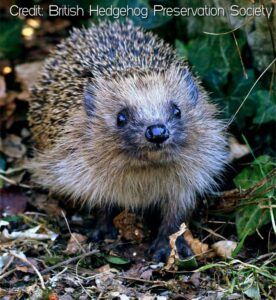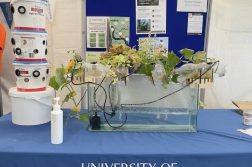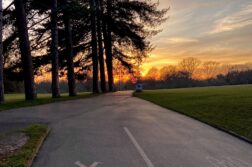Cast your mind back, before the pandemic eclipsed the news headlines; the world was slowly waking up to a different crisis – the global climate and environmental crisis, the extreme declines in biodiversity included.
Whether you joined the climate strikes or shed a tear at David Attenborough’s documentary Our Planet, there was a rising awareness of the environmental catastrophe looming. Fast forward and now we are faced with a different catastrophe. One much more immediate and increasingly personal as the virus affects our daily lives and those we love most. What perhaps this has given us albeit inadvertently, is time to reflect on the old normal and to begin to wonder what the new normal could be.
Hope for many of us is what is making this lockdown bearable. A hope that when this is all over we can see our family and friends again, that a new normal will have a more poignant meaning, a fresh start for whatever chapter we’re facing in our lives. Maybe hope that all that we had worked for, a waking awareness of the planet we live in, is given a springboard. That we can make real changes to bring down emissions and halt the extreme decline in global biodiversity. This hope for a new normal is important. This new normal is our chance to change so many socio-political and environmental structures that were not working before.
As the summer months approach and the lockdown boredom grows there is an opportunity to start working on this new normal. Our gardens provide an excellent opportunity to make space for nature and support UK biodiversity. And biodiversity matters; from increasing ecological resilience to climate change and even increasing carbon sequestration. By using this time to increase nature accessibility in our gardens we can directly impact UK species of conservation importance and reduce the rate of UK biodiversity loss.
The British Hedgehog, for example, is charismatic and a public favourite, but is rapidly disappearing from our countryside. The rising number of patio gardens and intensification of agriculture removes Hedgehog’s natural habitat. Additionally, garden fencing and increasing housing and road developments restrict movement connectivity throughout the landscape for many species including hedgehogs, leading to isolated, declining populations. British gardens have become poor homes for wildlife, but now we have the time to change this.

Using the lockdown to transform your garden into a wildlife and hedgehog friendly place can make a big difference to these declining species populations. Simple steps such as providing 13 x 13cm holes in between fences creating “Hedgehog Highways” can increase garden connectivity and allow greater movement for hedgehogs. Creating log piles can provide insects with a home from which other wildlife greatly benefits. If the lockdown is fuelling your craft projects, then hedgehog houses are a great way to create space for the species in your garden with many places like the British Hedgehog Preservation Society providing information on how to make them. Beyond creating space for hedgehogs, we can start thinking about how what we put into the environment can damage the species within it. Plastic pollution has made huge progress in public awareness, but chemical pollution also needs to be considered. Slug pellets, for example, are potentially hazardous for hedgehogs and other wildlife, and the use of them should be avoided.
Not all of us are lucky enough to have gardens but those of us who do not can also help make a difference by campaigning for change both now, and when things start to hopefully, move to a new normal. There are petitions online now for the creation of Hedgehog Highways and banning the use of metaldehyde in slug pellets Once the campus is open again there are also groups you can join to help make a physical difference to how open our campus is to nature including the Southampton University Hedgehog Friendly Campus Group.
As we struggle through this unusual time, let us not forget the progress we had made on raising awareness of the environmental crisis and use this time to build support for UK wildlife in hope of a better new normal to come. In an adaptation of Greta Thunberg’s famous quote; no garden is too small to make a difference.



